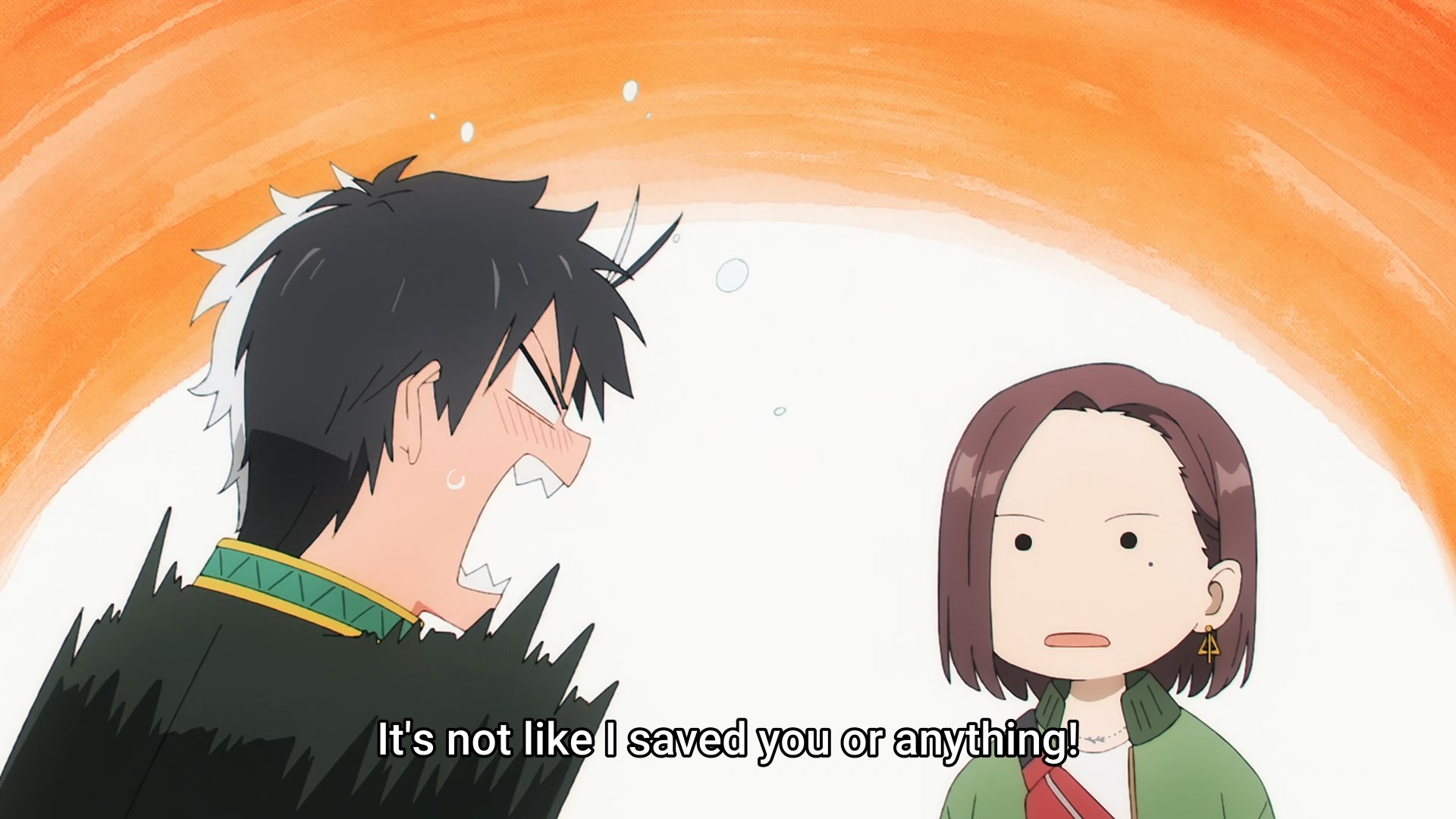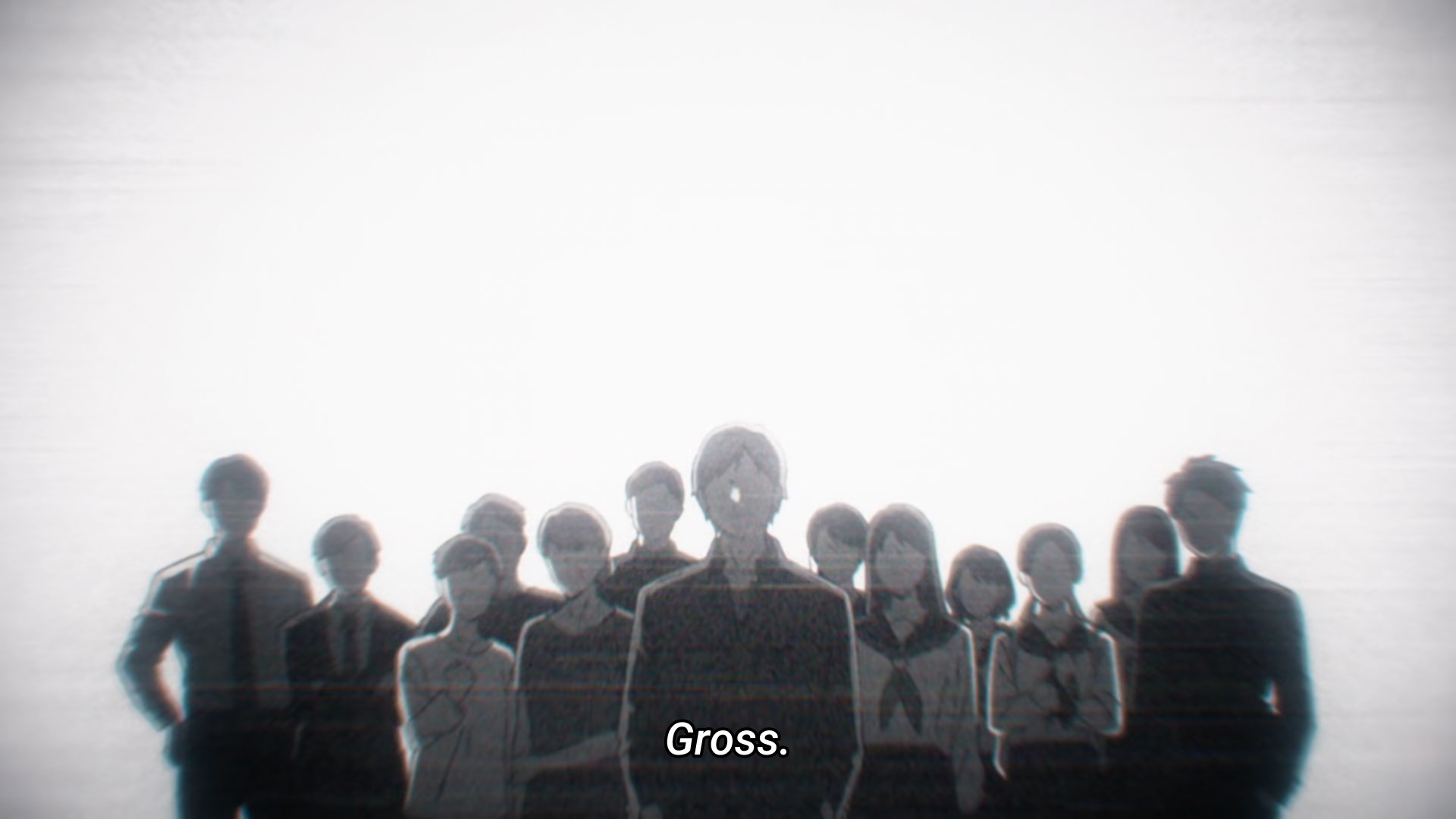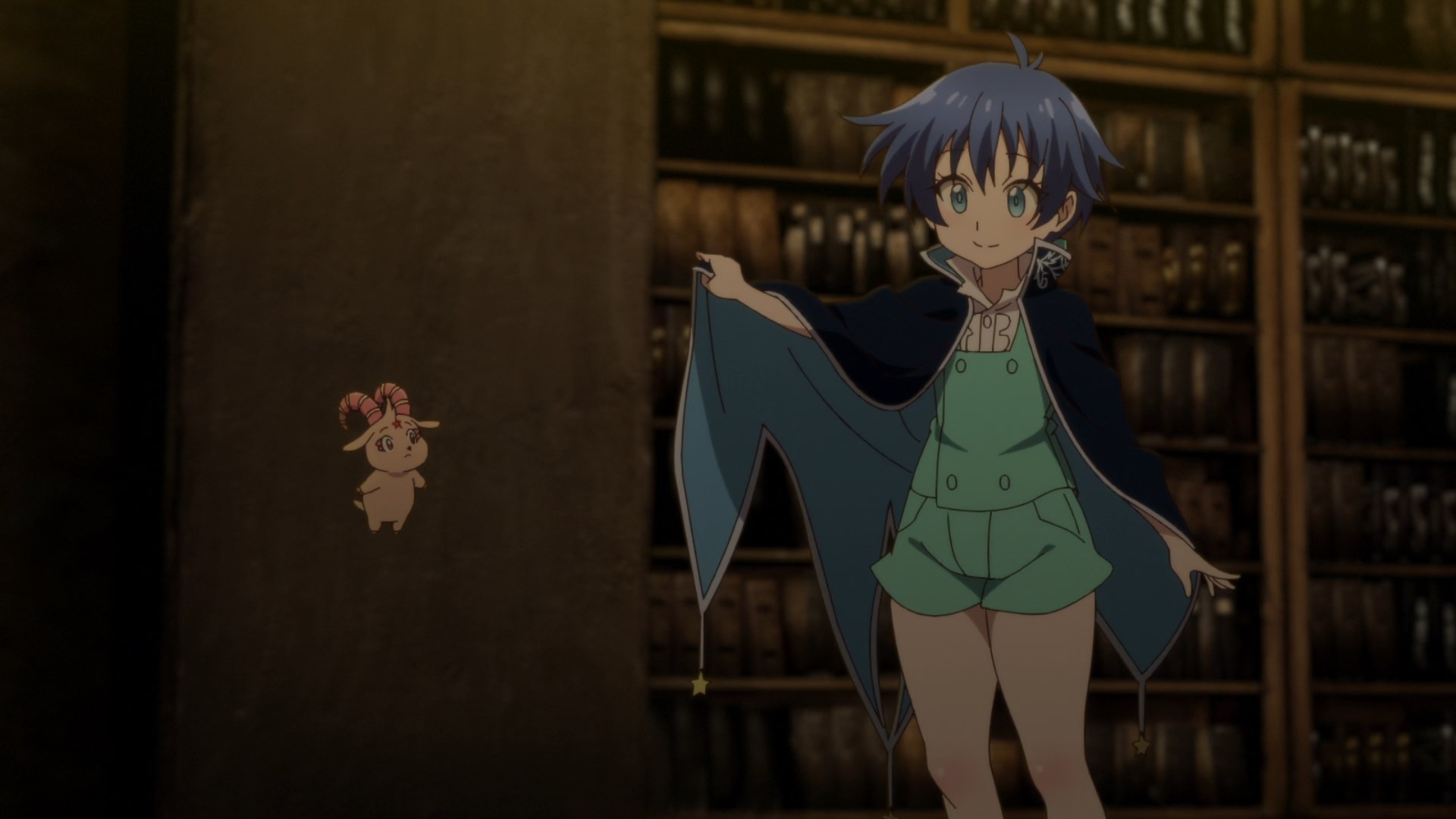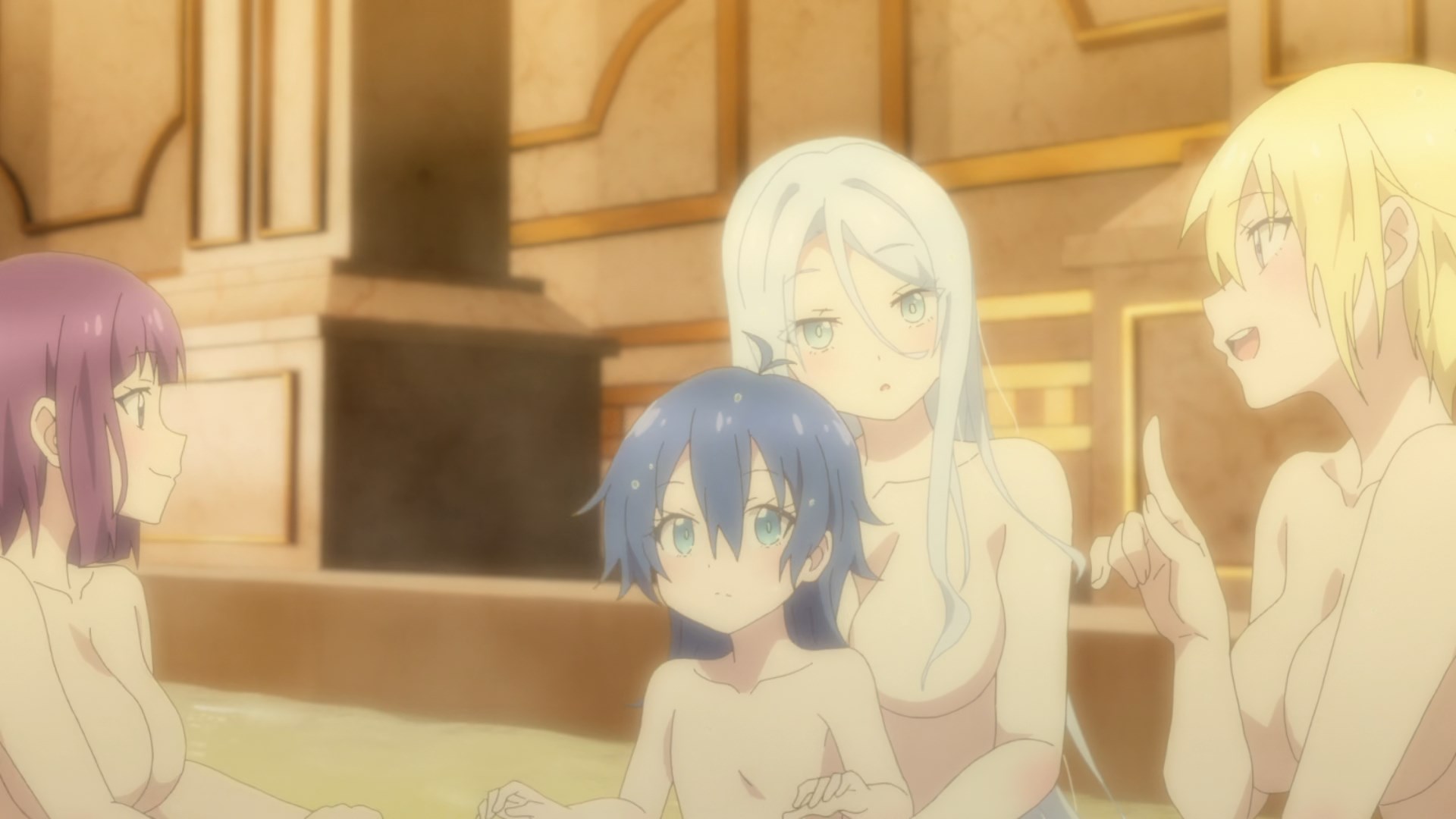It’s a bold strategy to start off your first episode emulating the most boring bits about Formula One. Let’s see if it pays off.

Spoilers: it didn’t.
It didn’t because the people involved with Highspeed Etoile seem neither to know nor care about how to make a race look interesting. This is no Initial D. There’s no sense of speed, no tactics or strategy at play here. There’s just the King and Queen, who, the commentators tell us, have been number one and two whole season with nobody else getting a look in, and they’re just faster and that’s it. The only real tactic on display during the two races in episode one and two is that the Queen has a team mate who cuts off anybody who tries to overtake him in third place, so that she can fight her battle with the King in peace. That does not for interesting racing make, having all the competition stuck behind you having to ride the Dick train.
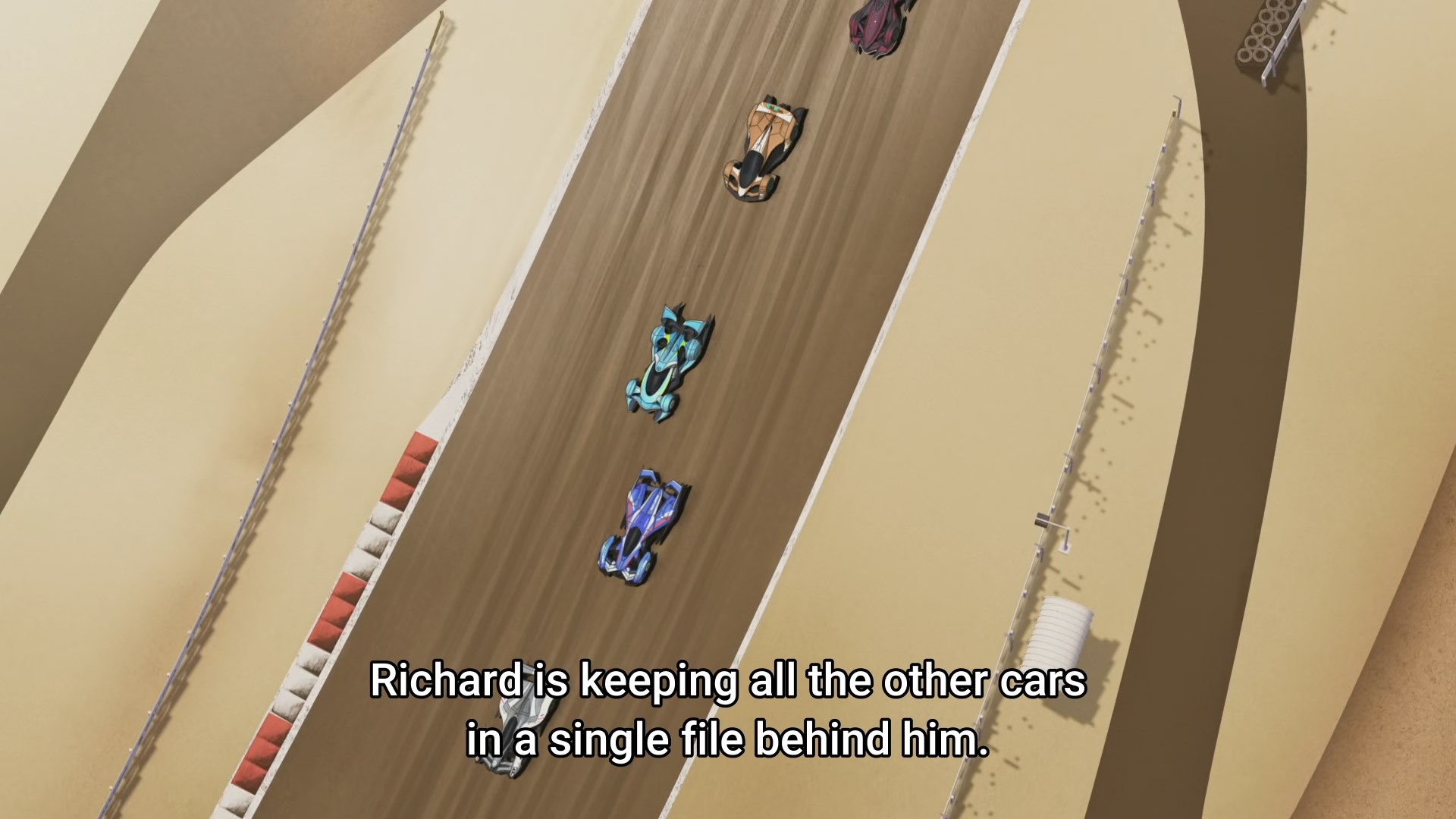
It’s not inherently a bad idea to introduce your cast and setting through a race: gets the adrenaline pumping, gives you some idea of who these people are through how they race, uses the commentators to inclue you on the strategies used and background of the race. Initial D did it all the time even with terrible nineties animation and CGI. But here it just feels like toy cars running on a toy track with no sense of personality for either the driver or the car. There’s no weight to it. I thought that maybe things would’ve improved with the second episode when I sat down to watch it this morning, as that finally introduced the actual protagonist, but most of the episode consisted of similar dull racing as the first. Worse, said protagonist turned out to be such a rookie that she didn’t realise she was lapped by the race leaders! I understand making her the underdog outsider, but this was just embarassing.
